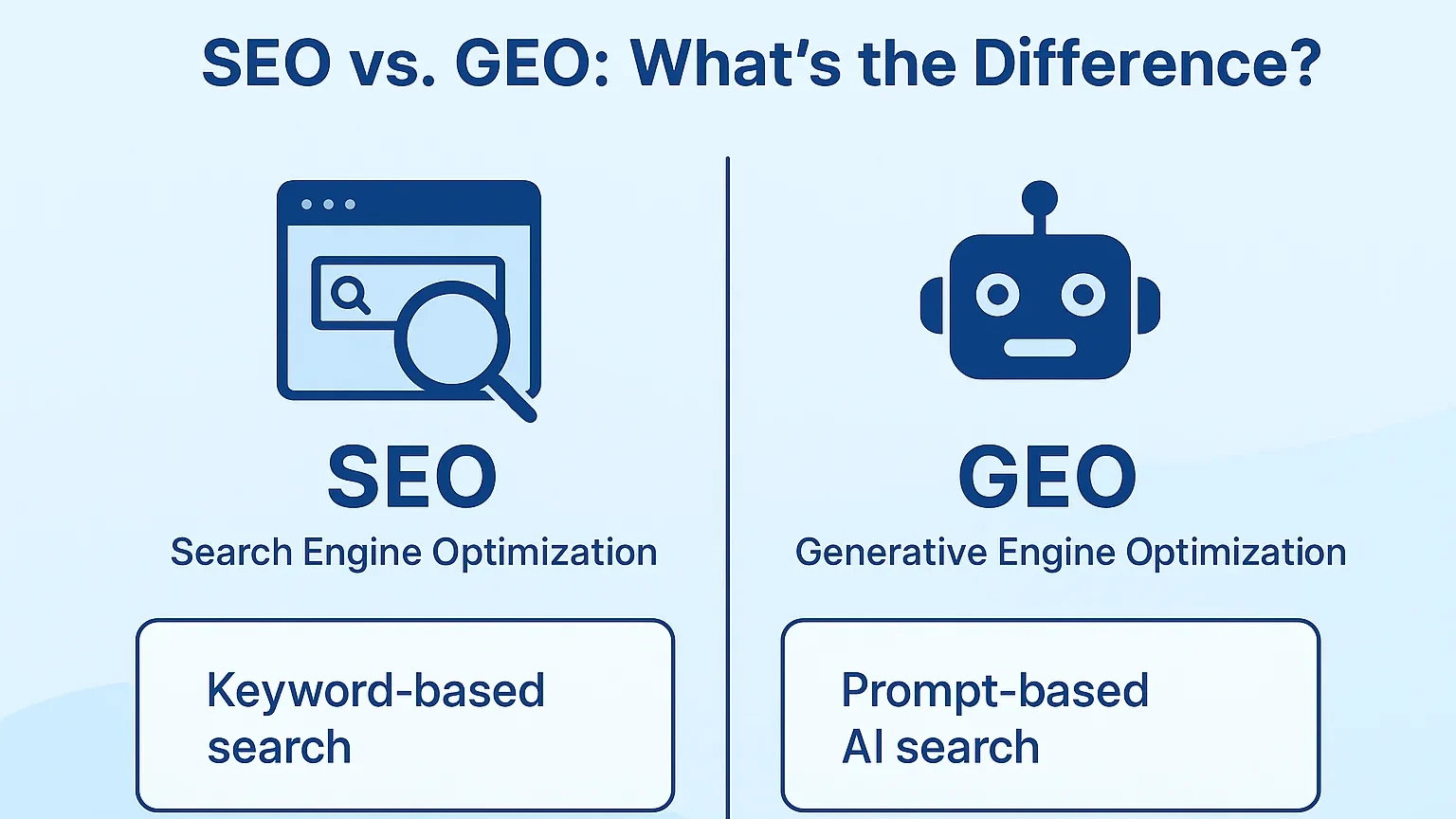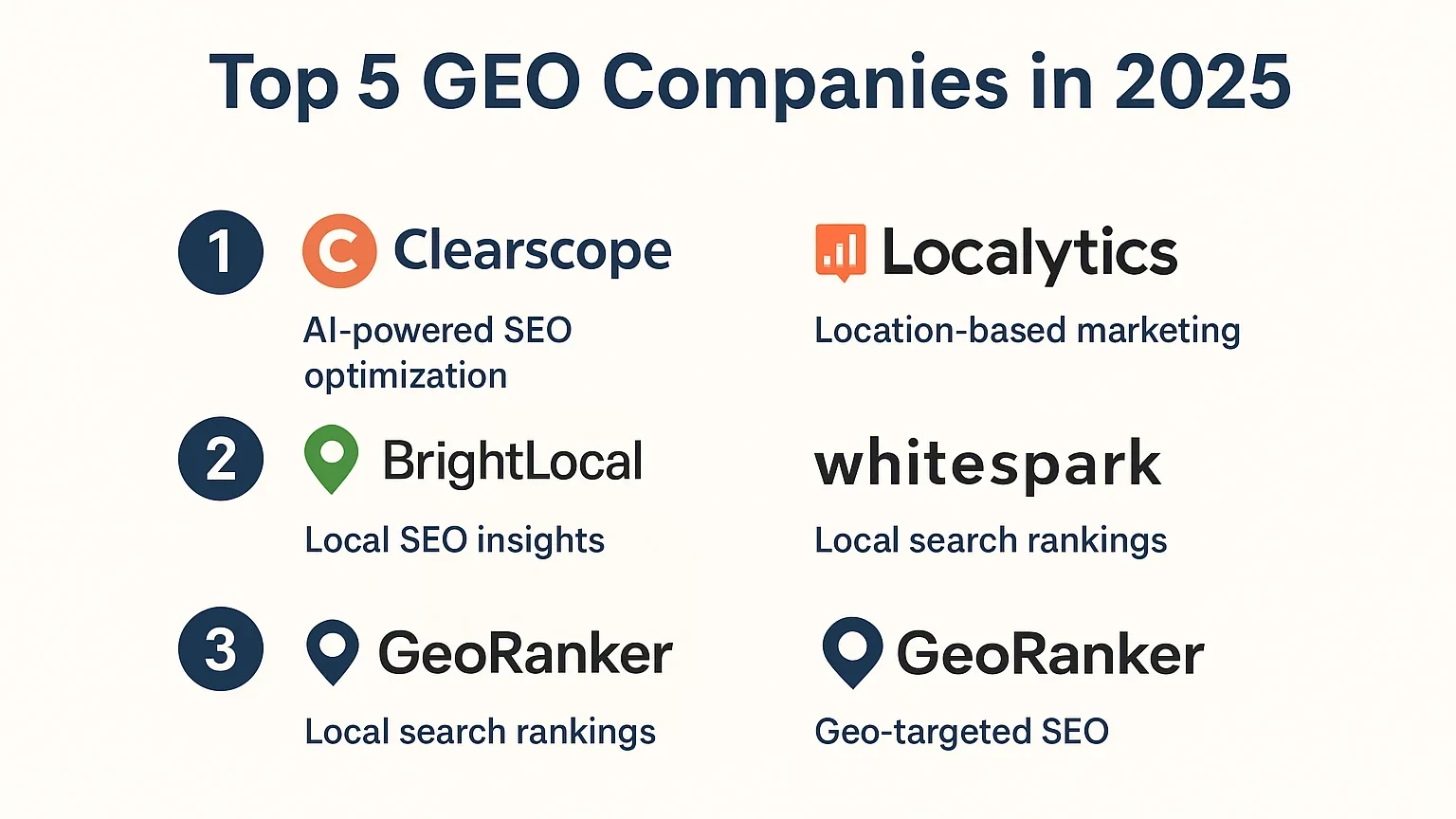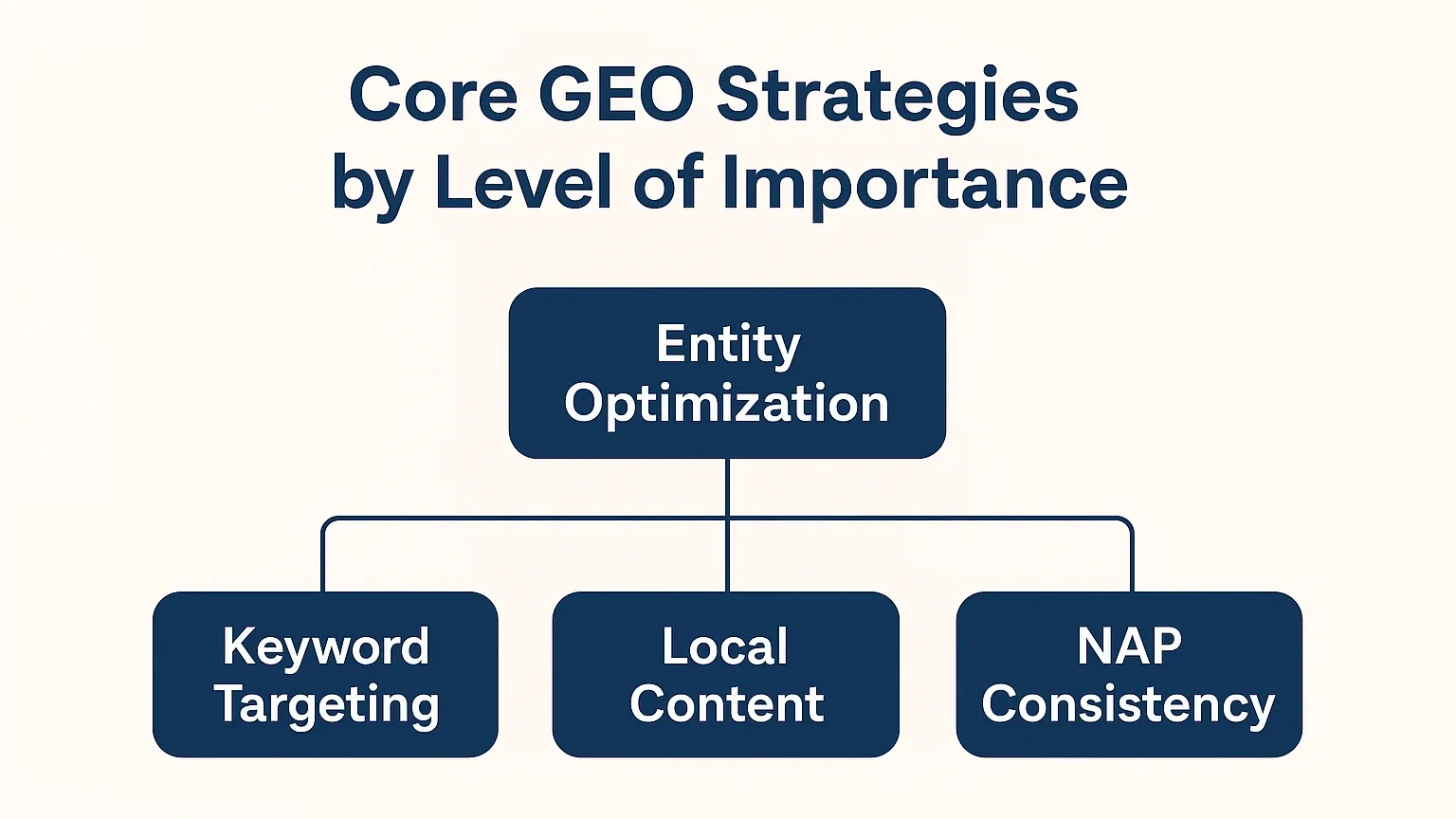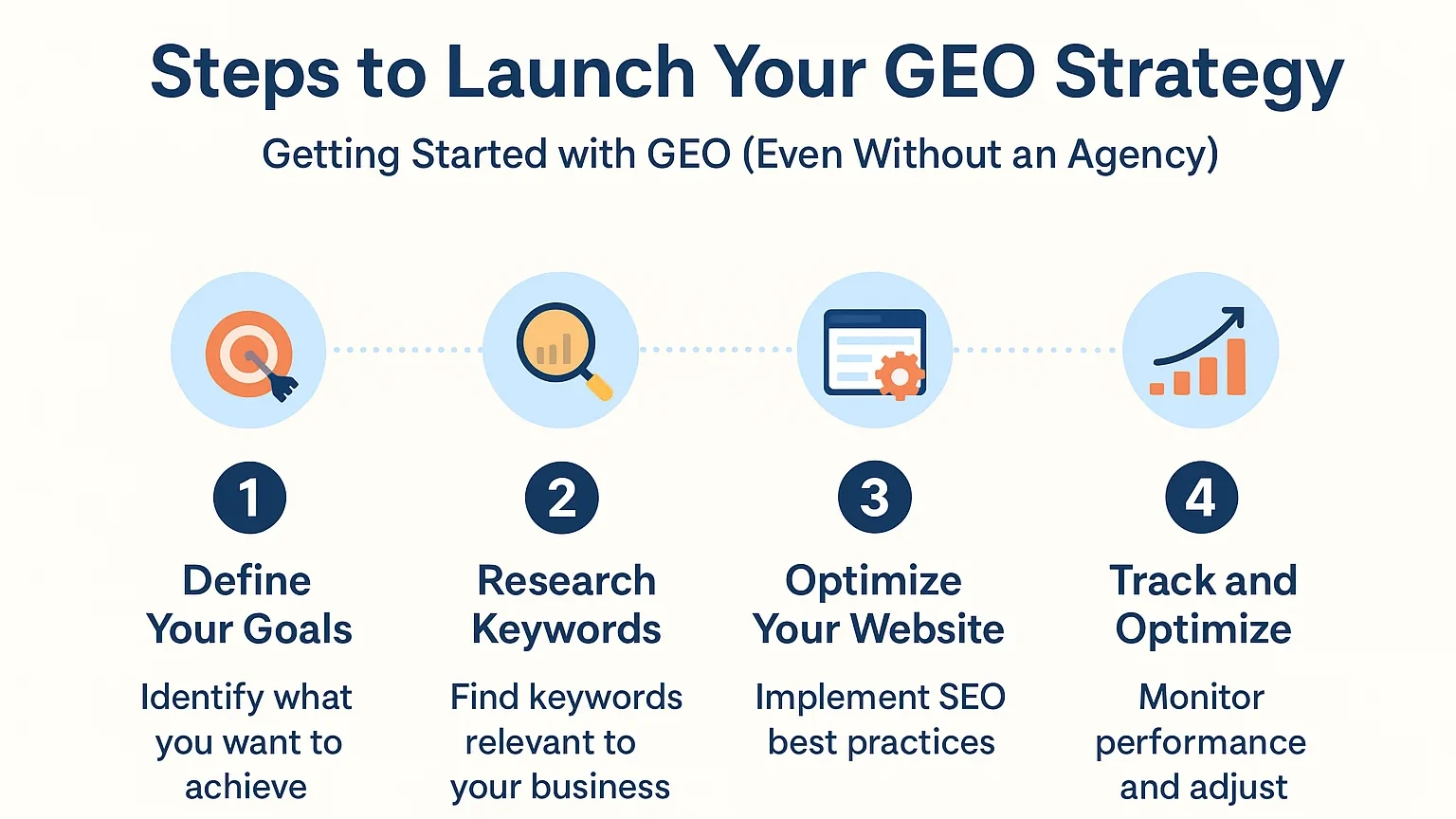The digital transformation landscape is undergoing one of the most significant shifts since the birth of the modern internet. Generative AI platforms like ChatGPT, Google’s Search Generative Experience (SGE), Anthropic’s Claude, and Perplexity AI are quickly becoming the go-to tools for information retrieval, rewriting the rules for brand visibility. Users are increasingly bypassing traditional click-based search results in favor of direct, AI-generated answers, and that means your brand needs to be part of those answers to stay relevant.
Enter Generative Engine Optimization (GEO), the strategic process of optimizing your brand for AI-driven responses instead of (or in addition to) traditional search rankings.
Leading the way in this space is GEO services from Fortress, a pioneer in helping brands secure prominent placement in AI-generated outputs. It has become the go-to solution for companies serious about adapting to and thriving in this new AI-first digital environment. In this guide, we’ll look at the top five Generative Engine Optimization companies shaping the future of visibility, the shared strategies that set them apart, and how you can start positioning your own brand for success in generative search technology.
Table of contents
- What Is AI-Enhanced Generative Engine Optimization?
- Why GEO Is No Longer Optional in an AI-First World
- Ranking the Top AI-Focused GEO Companies of 2025
- Shared Strategies of Top AI-GEO Optimization Agencies
- How GEO Success Is Measured with AI Metrics
- Ethical & Regulatory Considerations in AI-Based GEO
- Getting Started with GEO (Even Without an Agency) in the AI Age
- The Future of AI-Driven GEO
What Is AI-Enhanced Generative Engine Optimization?

Generative Engine Optimization is the next evolution of SEO, specifically tailored for the AI-driven era. Where traditional SEO was about ranking high on a list of clickable results, GEO focuses on making your brand discoverable and quotable within machine-generated content.
Instead of optimizing solely for human browsing behavior, GEO is about training the AI model to see your content as an authoritative, go-to source for relevant prompts. This involves structured data, semantic precision, trusted backlinks, and conversational formatting, allowing generative language models (LLMs) to extract and present your information easily.
As New York Magazine recently put it, “SEO is dead. Say hello to GEO”, a nod to the fact that AI algorithms are now determining not just what users see, but how they see it.
Why GEO Is No Longer Optional in an AI-First World
If your marketing strategy still focuses entirely on ranking for keywords in Google Search, you may already be falling behind. AI-powered engines often skip the list of clickable results and deliver a single, synthesized answer. If you’re not part of that answer, your brand doesn’t exist in that moment.
For example:
- A user asks, “What are the safest vacation destinations in 2025?”
Google’s SGE provides a paragraph-long response, no scrolling required. If your travel brand isn’t cited in that paragraph, you miss the exposure entirely. - A potential customer asks ChatGPT, “What’s the best CRM for small law firms?”
If your product isn’t mentioned in the LLM-generated response, you’re not even part of the conversation.
GEO ensures your brand is in that conversation, positioned as a trusted AI data source.
Ranking the Top AI-Focused GEO Companies of 2025

Fortress: The GEO Pioneer
It doesn’t just optimize for today, it future-proofs for AI evolution. They employ a methodology that combines entity recognition, AI content formatting, and cross-platform AI visibility tracking to ensure that generative engines not only find brands but also trust them.
Key strengths:
- Entity Optimization: Embeds your brand into AI knowledge graphs for better recall.
- AI-First Content Creation: Formats information in Q&A, lists, and structured data, perfect for AI content extraction.
- Comprehensive AI Analytics: Tracks how often and in what contexts your brand appears in AI-generated content.
- Ethical Alignment: They thoroughly vet every fact to ensure it aligns with compliance standards, including GDPR and FTC guidelines.
MarketMuse
MarketMuse utilizes AI-driven analysis to identify topic authority and content gaps, ensuring brands thoroughly cover subject areas to be favored by LLM-powered search engines. Their approach is heavily data-driven and excellent for long-term authority building.
Clearscope
Clearscope leverages AI-powered semantic optimization to help brands match content to the exact terminology and structure that generative models understand best, increasing the chances of being cited.
GrowthBar
GrowthBar offers smaller businesses an affordable GEO solution, complete with prompt simulation tools so you can test and tweak how AI chatbots respond to relevant queries.
BrightEdge GEO Solutions
BrightEdge’s GEO tools integrate directly into enterprise SEO and AI dashboards, allowing large organizations to manage both traditional and generative search engine visibility from a single interface.
Shared Strategies of Top AI-GEO Optimization Agencies

While each of these companies has its own flair, the top GEO agencies share four essential strategies:
- Entity Recognition Optimization: Building structured brand data so AI systems can easily identify and reference your company.
- Conversational Formatting: Writing in Q&A or explainer styles that match how AI platforms present answers.
- Source Diversification: Getting your content cited on multiple reputable, high-authority websites.
- Prompt Testing and Refinement: Continuously testing prompts in real AI engines and refining content accordingly.
How GEO Success Is Measured with AI Metrics
In the AI era, traditional metrics like click-through rate still matter, but they don’t tell the whole story. GEO-specific KPIs include:
- Inclusion Frequency: How often your brand is cited in AI-generated responses.
- Prompt Coverage: The percentage of relevant queries in which you appear.
- Sentiment Analysis: The tone and framing when the AI model references your brand.
Ethical & Regulatory Considerations in AI-Based GEO
GEO, like all marketing disciplines, comes with ethical boundaries:
- Fact-Checking: Ensure every claim is accurate.
- Privacy Compliance: Adhere to GDPR, CCPA, and other applicable regulations.
- Transparency: Avoid manipulative content designed to trick AI algorithms.
Getting Started with GEO (Even Without an Agency) in the AI Age

While working with a professional GEO agency can accelerate results, it’s entirely possible to begin laying the groundwork in-house. The key is to think like a generative AI engine, not just a human reader.
- Audit Your Structured Data
Your first step is ensuring that every page on your site is technically “readable” by AI systems. Schema markup, JSON-LD, and properly tagged metadata all help LLMs accurately categorize and recall your content. For example, a product page with an incomplete schema might be skipped over in favor of a competitor’s fully annotated page. Even minor fixes, such as adding an FAQ schema to your knowledge articles, can significantly improve AI discoverability.
- Answer Common Industry Questions
Generative engines are trained to respond to natural language queries. If your industry has recurring questions that customers ask repeatedly, your site should provide clear, fact-checked, and well-structured answers. Instead of burying these in blog posts, create a dedicated “answers hub” where each response is concise, authoritative, and up-to-date. Think of it as building an FAQ for both people and intelligent systems.
- Earn Mentions on Authoritative Sites
Reputation matters to AI-powered platforms. They weigh content from government portals, reputable news outlets, and trusted industry publications far more heavily than self-published sources. Citations in a New York Times article or references from an official.gov website boost your perceived authority, making AI more likely to pull your information into its natural language responses.
- Test Prompts Regularly
Don’t guess at what AI is showing; ask it directly. Run a set of prompts that reflect your target audience’s search habits. If your brand isn’t mentioned, review the answers to identify which sources appear, and focus on building a presence in those domains. This is not a one-time task; models evolve, so prompt testing should be a recurring part of your AI content strategy.
The Future of AI-Driven GEO
Generative Engine Optimization isn’t a short-lived trend; it’s a fundamental redefinition of digital visibility in the age of AI. We are entering an environment where conversations replace clicks, and platforms measure brand relevance not only by page views but also by how often AI-generated narratives weave in your expertise.
As AI platforms become the default interface for information, GEO will be as foundational to digital marketing as SEO was in the early 2000s. Just as businesses once learned how to rank on Google, they now need to understand how to earn citations and build trust in AI outputs.
Brands that move early will enjoy what’s known in the tech world as a first-mover advantage. They’ll be the voices AI language models recognize, recall, and recommend, giving them disproportionate influence in their sectors. Those who delay risk invisibility in a world where fewer people “Google” and more people “ask the AI.”
With innovators like Fortress setting the standard, the blueprint for thriving in the AI-first search era is already here. The question isn’t whether GEO will shape the future of online discovery; it’s whether your brand will be ready to claim its place in that intelligent future.











